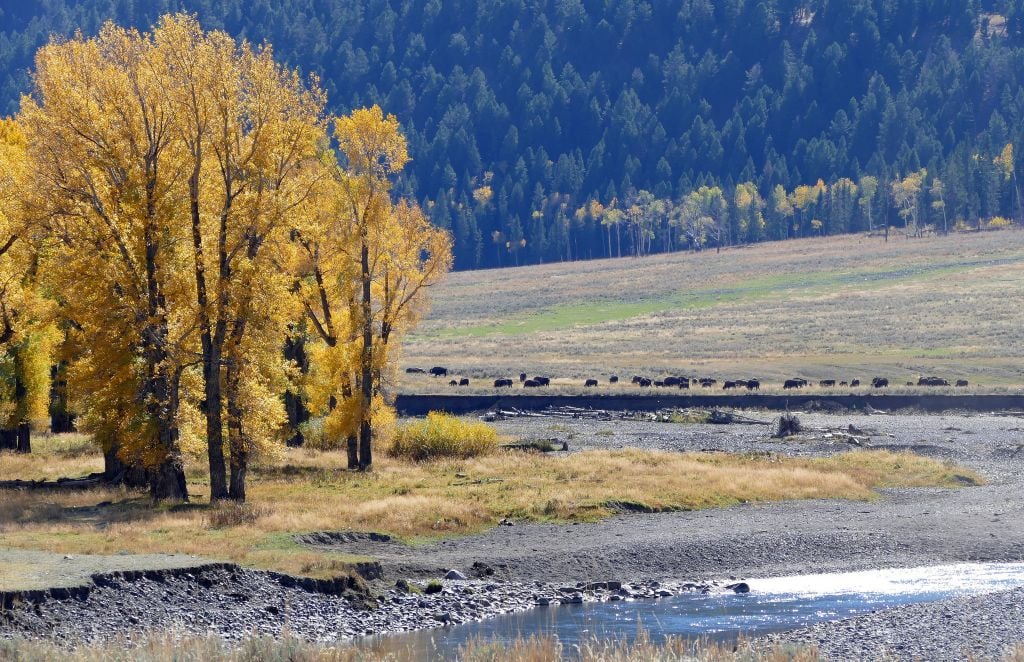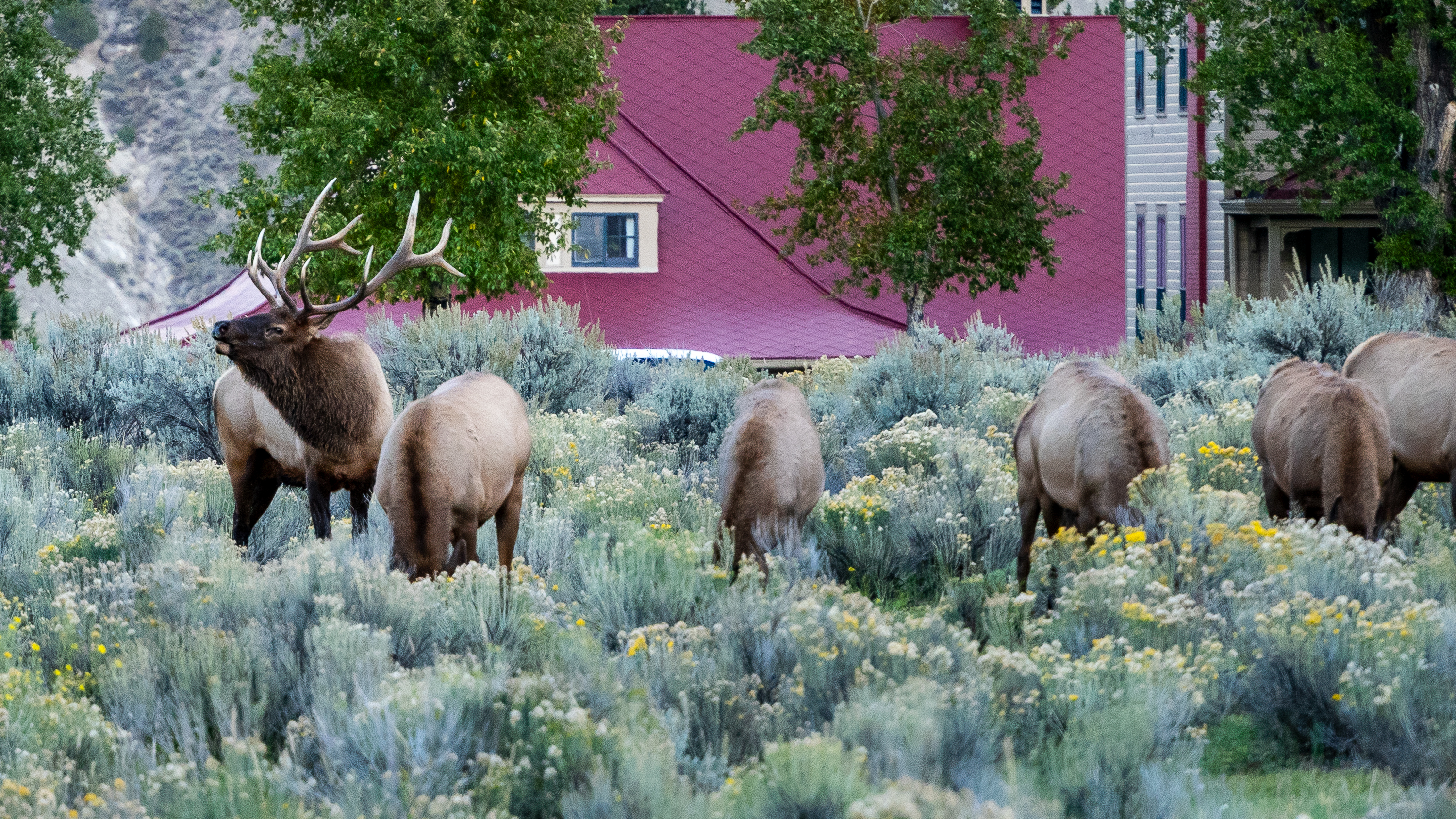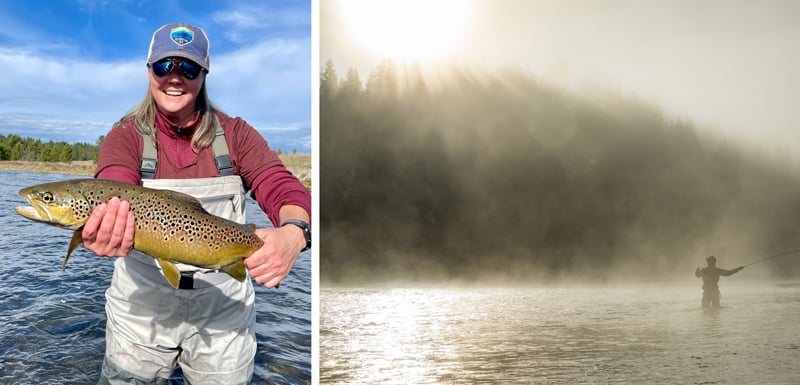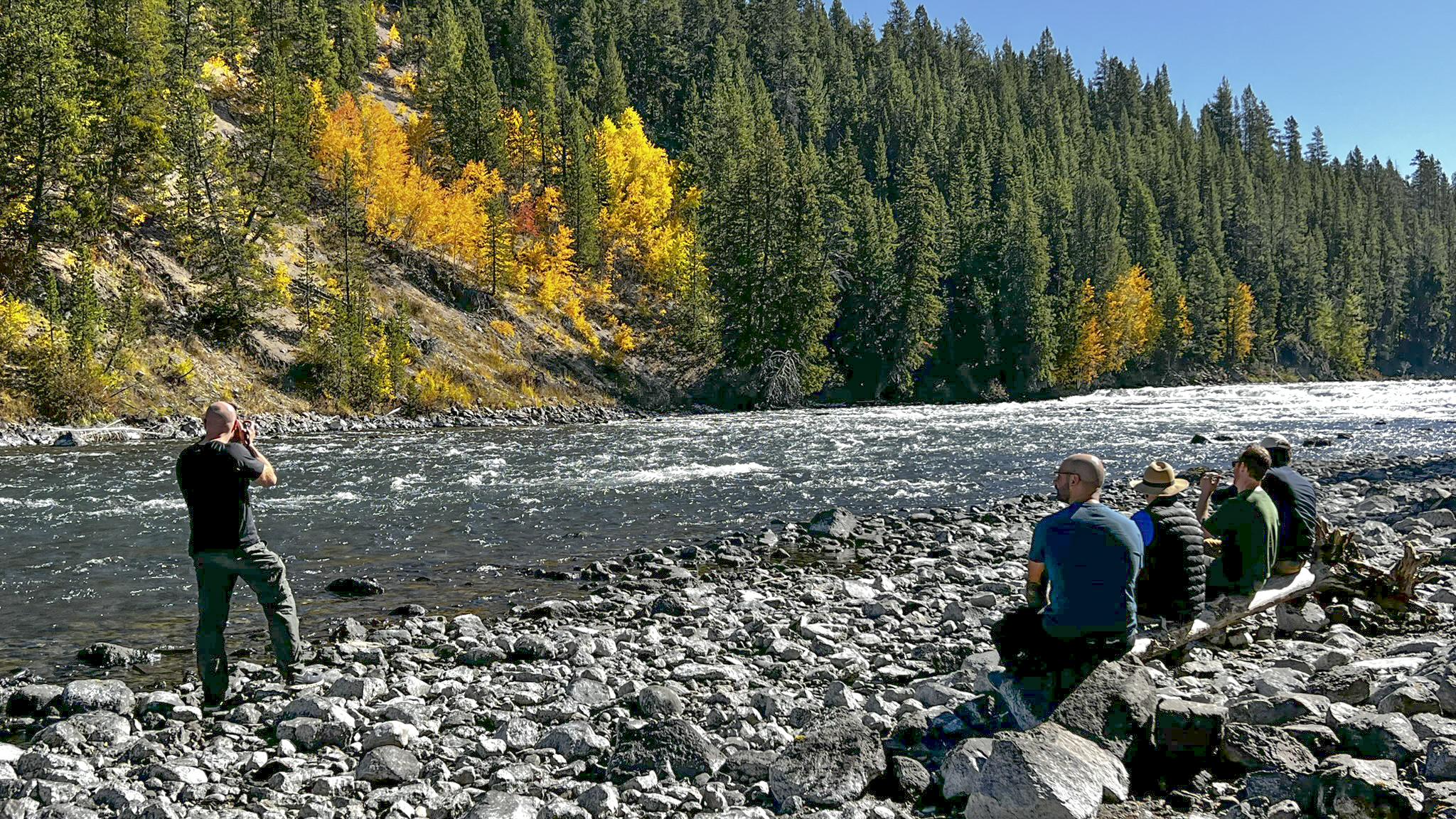Why Yellowstone in Autumn Should Be on Your Bucket List
YELLOWSTONE IN THE FALL
Many denizens of Yellowstone National Park would be hard-pressed to name their favorite season. It’d be like admitting to having a favorite child.
Not so with Dylan Hoffman, an avid fly fisher and resident of Gardiner, MT, near the park’s northern entrance.
“Fall is my favorite time in the park,” he declares. “You see fewer people. The weather is wonderfully cool. You don’t have to wake up as early in the fall because the days are shorter and it takes a while to warm up, so you can have an extra cup of coffee. And the aesthetics … the leaves are changing color and there’s a crunchiness to all the vegetation. It’s a wonderful time to be a fisherman in the park.”

Fall Lodging
Fall arrives early (late August) in Yellowstone. And the season is relatively short since park lodges close on a staggered schedule with the last availability sometime in October. (Two lodges re-opens for winter in mid-December.) Our online reservations lets you check availability on certain dates at specific lodges.
Wildlife
Wildlife watching is prime at this time of year, too. Mating (rutting) season for bison commences in August. Rut season for elk is in September. The males vie for female attention by emitting high- and low-pitched bugling sounds, certain to make wildlife watching all the more memorable.
“It’s not unusual to see elk fight and spar,” says Rick Hoeninghausen, Director of Sales & Marketing for Yellowstone National Park Lodges. “It’s an impressive sight. And they’re bugling, so there’s audio. There’s a music that can be found here that isn’t anywhere else.”

Bull elk bugling with his herd in a field at Mammoth Hot Springs
One of the best spots to witness the elk rut is around Mammoth Hot Springs near the park’s northern entrance. Lamar and Hayden valleys are both good bets for seeing bison. And because bulls return to the herds of cows and their young in autumn, their collective numbers are larger.
“In both cases, as wildlife prepares for winter, their coats are growing back, so not only are they active, they’re at their physical best,” notes Hoeninghausen.
Bears also are more active in fall, as they lumber about, foraging for roots, nuts, and berries to put on fat for their long winter hiatus.
Fishing
Avid fishers are drawn to Yellowstone’s rivers and streams in fall, when brown trout are spawning. Days on Yellowstone Lake come to an end in late August/early September but the rivers in the park hold special treasures for those willing to cast a fly.

Two go-to spots for destination fishers: the Madison and Gardner rivers. As the weather turns cooler the Firehole River also becomes a “hot spot.”
Photography
For photographers, autumn is nirvana. The grasses turn a golden yellow. Deciduous trees and shrubs reveal their true colors — hues of orange, red, and yellow. Aspen trees turn such a brilliant golden they appear to glow in the sunshine.

Photographer and group enjoying fall views of the Yellowstone River.
Days are comfortably cool. But temperatures can drop to freezing at night, so you might wake up to steam rising off the waterways and a light layer of snow on the surrounding granite mountain peaks.
Fall Packages
Several fall packages highlight the magic of the season. The air is crisp and cool, the ground cover shimmers with fall color, and the elk are bugling.

Tour buses wait for guests outside Old Faithful Inn
Our packages are a great choice and simplify some of the planning that goes into a visit to the world’s first National Park by including lodging, transportation, tours, guides, meals and more!
Washington, DC-based freelance writer Jayne Clark has been a travel reporter at USA TODAY and several other daily newspapers.
20180705
For A World of Unforgettable Experiences® available from Xanterra Travel Collection® and our sister companies, visit xanterra.com.
Want to experience Yellowstone in-depth? See what makes Yellowstone National Park a great place to work for a season or longer!